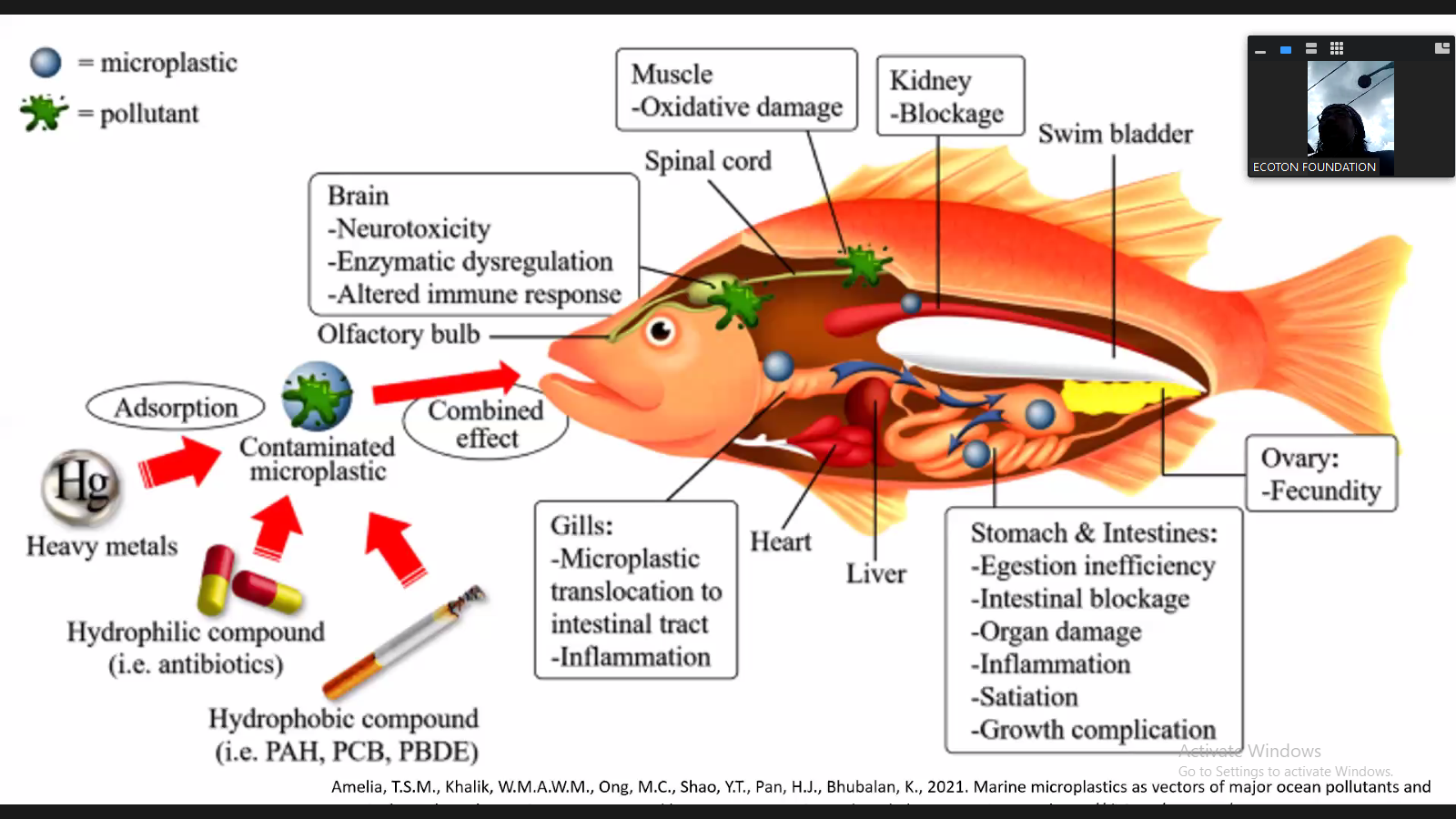UNAIR NEWS – Some people must have been more familiar with plastic as waste in large size which is difficult to degrade. In reality, plastic waste scattered in the environment is also found as very tiny particles called microplastics.
Microplastics are plastic waste with a size smaller than 5 mm which is from liquid waste of the cosmetic industry or synthetic clothing as well as the fragmentation of plastic waste in the environment due to weathering and biofouling. Because of their small size, microplastics pose a higher risk of harm than macroplastics because they can accumulate in the body of organisms.
In the Faculty of Fisheries and Marine Sciences Student Executive Board’s FISH TIME Webinar last Saturday, June 5, 2021, Ecoton (Ecological Observation and Wetlands Conservation) Founder Prigi Arisandi revealed that because plastic is difficult to degrade, they will be carried away by currents and eventually gather in areas where plastic cannot be carried anywhere else. In the process, he continued, due to exposure to currents and heat from the sun, plastic will break down into smaller particles.
“The process is called fragmentation, which means it breaks down into smaller particles, not lost or decomposed like organic waste, so it’s much more dangerous,” he explained.
Continuing his explanation, because it is distributed widely easily, microplastics can be present in various elements of human life from food to drinks. Microplastics can undergo biomagnification in the food chain cycle which will eventually lead to humans. He said that due to plastic waste pollution, humans currently consume an average of 0.7 grams of plastic per day.
“If we accumulate it, in a year we consume 1 project helmet or the equivalent of 1 kg of plastic,” he said.
The man born in Gresik also explained the dangers of microplastics if consumed by humans. He revealed that in microplastics, there can be 3 harmful ingredients, Bisphenol A (BPA) that hardens plastics, Alkylphenols from beauty products and Phtalates that makes plastics flexible. All of these some have carcinogenic properties causing cancer.
“BPA can affect fertility and cause male sexual dysfunction and prostate cancer, Alkylphenols can cause infertility in men and breast cancer, Phthalates can reduce reproductive hormones, increase miscarriage rates and early menopause,” he said.
Moreover, he revealed that there are some microplastic particles that are hydrophobic as in scrub soap products. When discharged into the environment, these microplastic particles can adsorb other pollutant materials such as heavy metals, antibiotics, PCBs which pose a much more dangerous risk.
“Therefore, be wise in choosing and using products with plastic packaging so that at least if we don’t reduce plastic waste, we don’t add to it,” he said.
At the end, he gave tips to reduce plastic pollution from yourself. He appealed not to use 5 types of plastic that cannot be recycled, plastic packaging, straws, styrofoam, sachet packaging and disposable drink bottles/glasses.
“Especially disposable drink bottles, as a student, don’t be fooled, when you buy bottled water it’s the same as buying plastic Rp. 3000 because the price of the mineral water is not more than Rp. 300, so use your own bottle,” he urged.
Author: Ivan Syahrial Abidin
Editor: Nuri Hermawan





